ICT Indicators for monitoring international goals and targets
Partnership on Measuring ICT for Development
Session 216
The Partnership on Measuring ICT for development, a multi-stakeholder initiative launched in 2004, is the direct response to the request made by the World Summit on the Information Society (WSIS) to produce official statistics to monitor the information society. The Partnership aims to improve the availability and quality of internationally comparable ICT statistics and provides a framework for the coordination of activities carried out by international and regional organizations involved in ICT measurement. The session will highlight activities of Partners, including future plans to improve the quality and availability of data needed for monitoring the achievement of international goals and targets, such as those of the 2030 Agenda for Sustainable Development, the implementation of WSIS action lines, and the assessment of the Global Digital Compact. The session will also discuss whether the current core list of ICT indicators defined by the Partnership and endorsed by the UN Statistical Commission in 2022, and their methodologies to collect the indicators, are sufficient to answer current and future policy making needs. The session will also address capacity building needs of countries and other challenges faced to produce official ICT statistics.
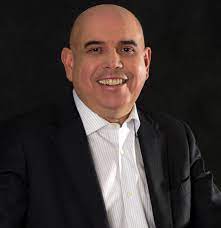
Mr Alexandre Barbosa is the Head of the Regional Center for Studies on the Development of the Information Society (Cetic.br), linked to the Brazilian Network Information Center (NIC.br). Responsible for research projects to produce ICT-related statistics for the monitoring of national policies and international goals, such as the Sustainable Development Goals (SDGs). Coordinates capacity building programs in survey methodologies in Latin America and Portuguese-speaking countries in Africa. Mr. Barbosa was the Chair of the Expert Group on ICT Households indicators (EGH) from the International Telecommunications Union (ITU) from 2012 to 2017, expert at the OECD working party on Measurement and Analysis of the Digital Economy and working party on Artificial Intelligence Governance.
Mr Barbosa holds a PhD degree in Business Administration from Getulio Vargas Foundation (Brazil), a Master Degree in Business Administration from Bradford University (UK), a MSc Degree in Computer Science from Federal University of Minas Gerais (Brazil) and a BSc Degree in Electrical Engineering from Catholic University (Brazil). He has also conducted postdoctoral research at HEC Montreal (Canada).
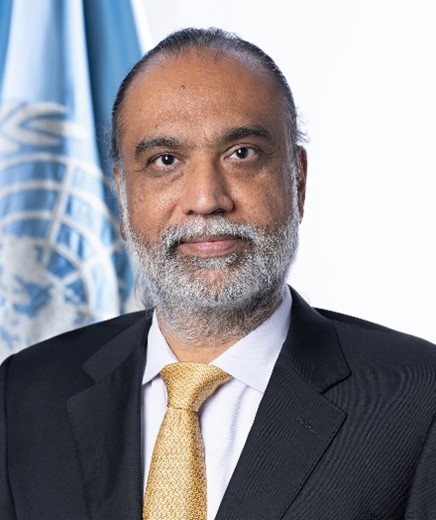
Mr. Amandeep Singh Gill was appointed by the United Nations Secretary-General as his Envoy on Technology in June 2022 and joined the Secretary-General’s senior leadership team as Under-Secretary-General in mid-July 2022. A thought leader on digital technology, Mr. Gill has a deep knowledge of digital technologies coupled with a solid understanding of how to leverage the digital transformation responsibly and inclusively for progress on the Sustainable Development Goals.
Before taking up the position as Envoy on Technology, Mr. Gill was the Chief Executive Officer of the International Digital Health and Artificial Intelligence Research Collaborative (I-DAIR) project, based at the Graduate Institute, Geneva. In 2018/19, Mr. Gill was Executive Director and co-lead of the United Nations Secretary-General’s High-Level Panel on Digital Cooperation. Between 2016 and 2018, he was India’s Ambassador and Permanent Representative to the Conference on Disarmament in Geneva.
Mr. Gill holds a PhD in international learning from King’s College London, a Bachelor of Technology in electronics and electrical communications from Panjab University, Chandigarh, and an Advanced Diploma in French history and language from Geneva University. He is fluent in English, French, Hindi and Punjabi. He is married to Ashma, an educationist, and has a son and a daughter.

Dr Cosmas Zavazava took office as Director of the Telecommunication Development Bureau (BDT) at the International Telecommunication Union (ITU) on 1 January 2023.
With more than 30 years in telecommunications, including over 20 years in ITU's Development Sector, Dr Zavazava has promoted and implemented impactful information and communication technology projects around the world.
Prior to his election as BDT Director, he served as ITU's Chief of Partnerships for Digital Development, overseeing development-related projects, strategic partnerships, and resource mobilization between 2019 and 2022, while launching new initiatives that have boosted the engagement of industry, private-sector, and academia members in ITU's work.
From 2010 until 2019, he was Chief of the Projects and Knowledge Management, responsible for ITU's project portfolio, statistics, capacity building, and emergency telecommunications activities, as well as coordinating special assistance to least developed countries (LDCs), landlocked developing countries (LLDCs), and small island developing states (SIDS).
Previously, as ITU's Chief of Projects and Initiatives, he oversaw development projects focused on gender, youth, and people with special needs, along with capacity building, emergency telecommunications, climate change mitigation and adaptation, and e-waste management.
Earlier, Dr Zavazava headed the Republic of Zimbabwe's Government Telecommunications Agency and served as a senior diplomat. He also taught MBA classes at the UK's Nottingham Trent University.
Throughout his career, he has focused on closing the digital and skills divide and accelerating digital transformation to achieve socio-economic development for all.
Dr Zavazava holds a PhD in Multilateral Trade from Business School Lausanne (Switzerland), and a Master of Laws degree in Telecommunications and Information Technology from the University of Strathclyde (UK), as well as a Master's in International Relations from Webster University (US), and an MBA from the University of Zimbabwe. He also holds a Bachelor's in Business Administration and diplomas in Telecommunications and Systems Engineering.
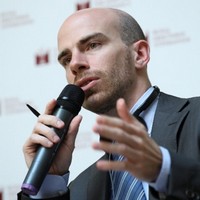
Mr Thierry Geiger is Senior Economist and Head of the Data and Analytics Division at the International Telecommunication Union. Prior to joining ITU in 2020, Mr Geiger spent 15 years at the World Economic Forum in various roles. As Head of research and benchmarking within the Centre for the New Economy and Society, he was in charge of several benchmarking studies and initiatives, including the flagship Global Competitiveness Report and Global Gender Gap Report series, and led the development of a dozen of composite indicators. He led the Centre’s competitiveness practice for Asia and the Pacific and was responsible for technical assistance and capacity-building activities. Mr Geiger also worked for the World Trade Organization and Caterpillar Inc, and co-founded Procab Studio, a Geneva-based IT company. A Swiss national, Mr Geiger holds a BA in Economics from the University of Geneva, an MA in Economics from the University of British Columbia, and was a Fellow of the World Economic Forum’s Global Leadership Programme.
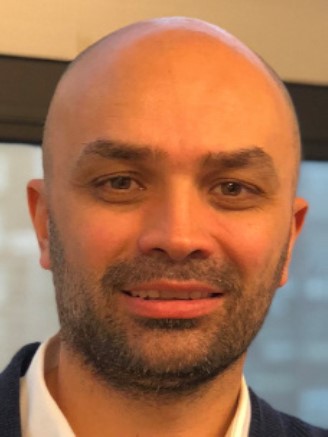
Mr Deniz Susar is the Governance and Public Administration Officer in UN DESA. His main work areas include e-government, internet governance, smart cities, artificial intelligence, ICT indicators and in general using ICTs for sustainable development in general. He takes active role in preparation of annual Internet Governance Forum (IGF) meetings and its inter-sessional work. He also leads UN DESA activities on World Summit on Information Society (WSIS). He coordinates the work on smart cities with the Local Online Service Index (LOSI) as part of the United Nations E-Government Survey.
Mr Deniz Susar represents UN DESA in the Partnership on Measuring ICT for Development and works on ICT indicators to track progress in the achievement of the Sustainable Development Goals (SDGs). Mr Deniz Susar holds a Master Degree on International Political Economy and Development from Fordham University, New York, and a Computer Engineering degree from the Bogazici University of Istanbul.
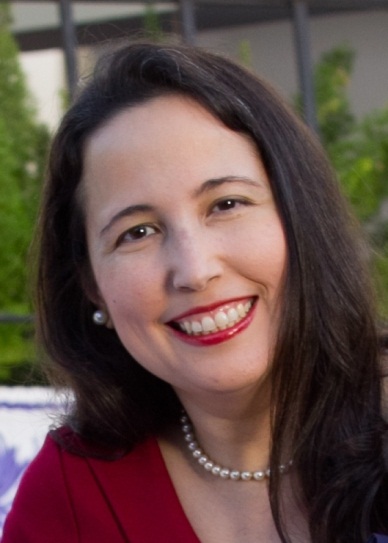
Ms. Scarlett Fondeur has been working since 2003 for the E-commerce and Digital Economy Branch of UNCTAD. She launched UNCTAD’s data collection on the use of ICT by businesses, on the ICT sector, and on international trade in ICT goods, and has helped develop statistical work on measuring trade in ICT-enabled services. She is also involved in the development of internationally comparable ICT statistics in the context of the Partnership on Measuring ICT for Development, which is composed by 14 international organizations. Ms. Fondeur is an Economics graduate from the Santo Domingo Institute of Technology in the Dominican Republic, with a Masters in International Relations from the University of East Anglia in the United Kingdom.
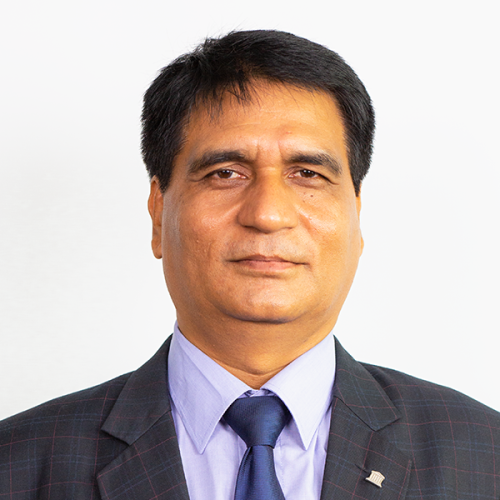
Roshan Bajracharya is the Senior Regional Advisor for UNESCO Institute for Statistics- Asia Pacific region. Mr. Bajracharya has been continuously working with Global, Regional, and National partners in strengthening country capacities in statistical systems particularly education statistics for more than 12 years. He has taken strong leadership in streamlining global monitoring with developing national SDG4 monitoring and education statistical frameworks by designing and implementing various statistical programmes and projects for strengthening education data in the Asia and pacific region.
With Ph.D. in Education Administration, Mr. Bajracharya is a trained statistician with Master’s in science (Statistics) and Master’s in educational Pedagogy, has organized numerous regional and national training workshops for member states on international education statistics, monitoring, and data analysis for decision-making. He has also authored and contributed to many technical guides, manual and information papers, and assessment reports in the areas of education data, indicators and statistics.
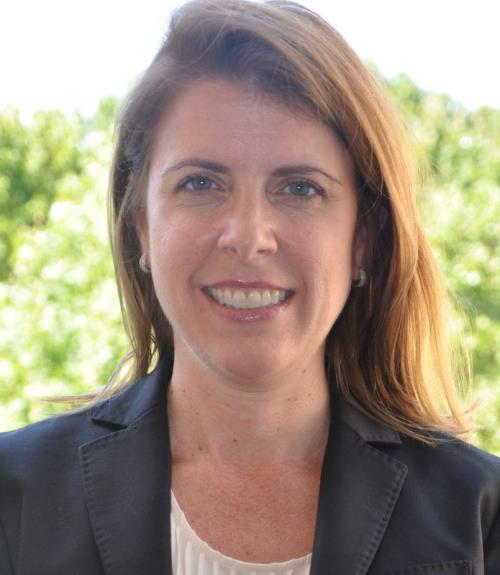
Ms Molly Lesher is the head of the OECD Digital Policy, Economics and Measurement unit. She leads work to quantify digital transformation, its impacts, and policy responses. She coordinated the Going Digital project, leading the development of the Going Digital Integrated Policy Framework and the online and interactive Going Digital Toolkit. Previous positions include Counsellor to the Directors of the OECD Science, Technology and Innovation Directorate, 10 years as a trade economist in the OECD’s Trade and Agriculture Directorate, as well as roles in the Research Department of the US Federal Reserve Bank (international economics) as well as the private sector (Fidelity Investments, a US-based financial services company).
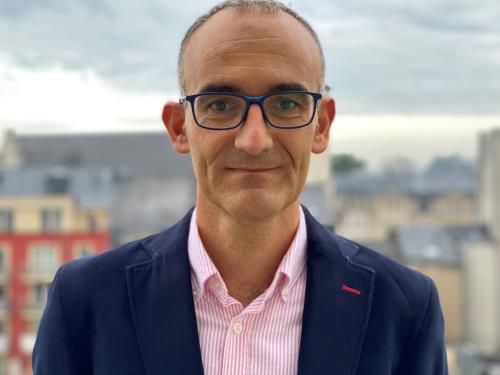
Mr Alvaro Diez Soto is the Head of Unit responsible for digitalisation and science and technology statistics at Eurostat, the statistical office of the European Union.
In his role, Alvaro and his team are focus on the production of quality statistical data related to digitalization of the EU economy and society and to R&D and innovation activities.
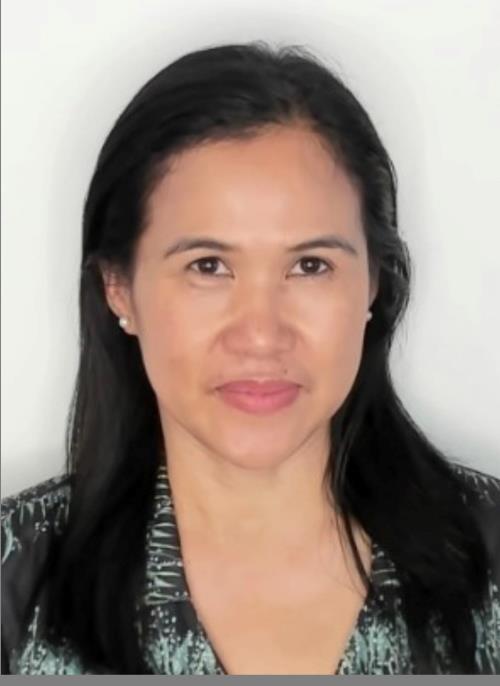
Ms Esperanza Magpantay is the Senior Statistician of the ICT Data and Analytics division of the International Telecommunication Union (ITU), where she has been working since December 2000. She is responsible for the collection, harmonization, and dissemination of ICT statistics. Ms Magpantay is the ITU’s representative at the Partnership on Measuring ICT for Development and its Steering Committee, The UN Inter-agency Expert Group on SDG Indicators (IAEG-SDG) and the UN Committee of Experts on Big Data and Data Science for Official Statistics (UN-CEBD) where she currently leads the Task Team on mobile phone big data. She has represented ITU in international meetings including the UN Statistical Commission, the UN Committee for the Coordination of Statistical Activities (CCSA), the UN World Data Forum (UNWDF) and regional events giving presentations and trainings on ICT statistics. Before joining ITU, she worked for 7 years at the International Labour Office (ILO) in Geneva as a statistical officer. Ms Magpantay holds a master’s degree in Business Analytics and Big Data from IE University in Madrid, Spain, and Bachelor of Science in Statistics from the University of the Philippines.
-
 C11. International and regional cooperation
C11. International and regional cooperation
The session is about data and indicators needed to monitor the implementation of WSIS action lines.
-
 Goal 4: Ensure inclusive and equitable quality education and promote lifelong learning opportunities for all
Goal 4: Ensure inclusive and equitable quality education and promote lifelong learning opportunities for all
-
 Goal 5: Achieve gender equality and empower all women and girls
Goal 5: Achieve gender equality and empower all women and girls
-
 Goal 9: Build resilient infrastructure, promote sustainable industrialization and foster innovation
Goal 9: Build resilient infrastructure, promote sustainable industrialization and foster innovation
-
 Goal 17: Revitalize the global partnership for sustainable development
Goal 17: Revitalize the global partnership for sustainable development
The ICT indicators needed for monitoring the SDGs are included in the work of the Partnership.
//1f8a81b9b0707b63-19211.webchannel-proxy.scarabresearch.com/en/ITU-D/Statistics/Pages/intlcoop/partnership/default.aspx